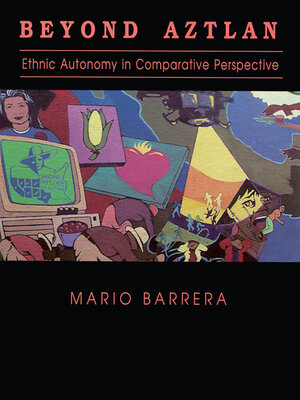
Sign up to save your library
With an OverDrive account, you can save your favorite libraries for at-a-glance information about availability. Find out more about OverDrive accounts.
Find this title in Libby, the library reading app by OverDrive.



Search for a digital library with this title
Title found at these libraries:
| Loading... |
Beyond Aztlan argues that American society has historically viewed a distinctive cultural identity as something that an ethnic group gives up in order to achieve economic and political parity.
Mexican Americans, who have scored limited gains in their struggle for equality since the 194Os, are proving to be no exception to the rule. Mario Barrera in this provocative volume compares the situation of Mexican Americans to that of minority groups in four other countries, and concludes that equality does not necessarily require assimilation. This unique comparative study will appeal to a wide audience—especially to students and professors of sociology. ethnic studies, political science, anthropology, and American studies.
Barrera's work begins with an examination of the goals of the Mexican American population, which he identifies as community and equality. He discusses the historical emergence of these goals and the shift to an emphasis on equality over community. Subsequent chapters explore the revival of community identity during the period of the Chicano Movement, as well as later trends toward fragmentation, radicalization, and re-traditionalization. He compares the pluralistic accommodations of Canada, China, Switzerland, and Nicaragua with the United States and discusses the relative success of their multicultural emphases and their regional autonomy arrangements. Barrera concludes that it is possible to achieve a pluralistic ethnic accommodation that would recognize the legitimacy of both equality and community goals without sacrificing cultural diversity.






